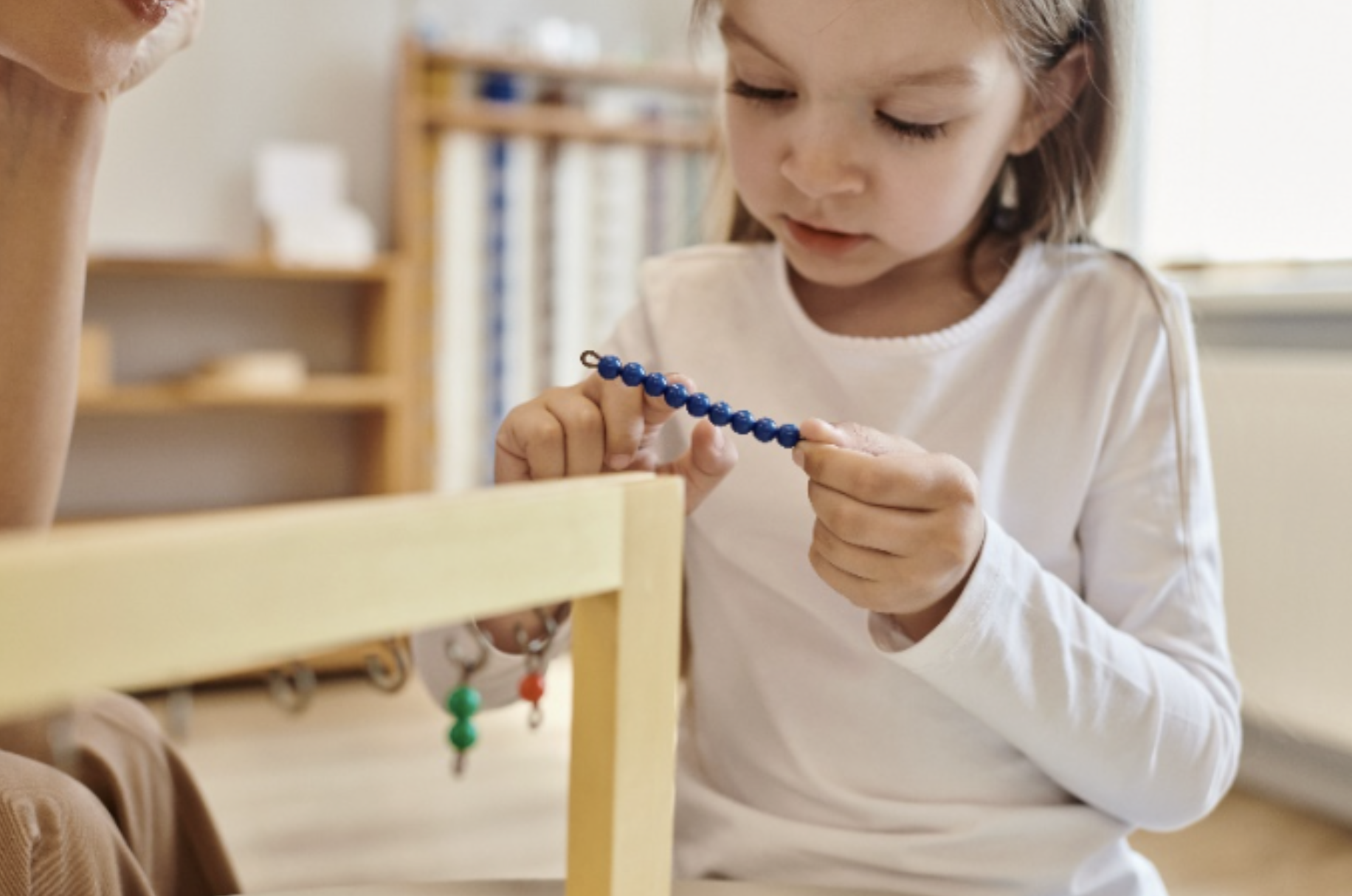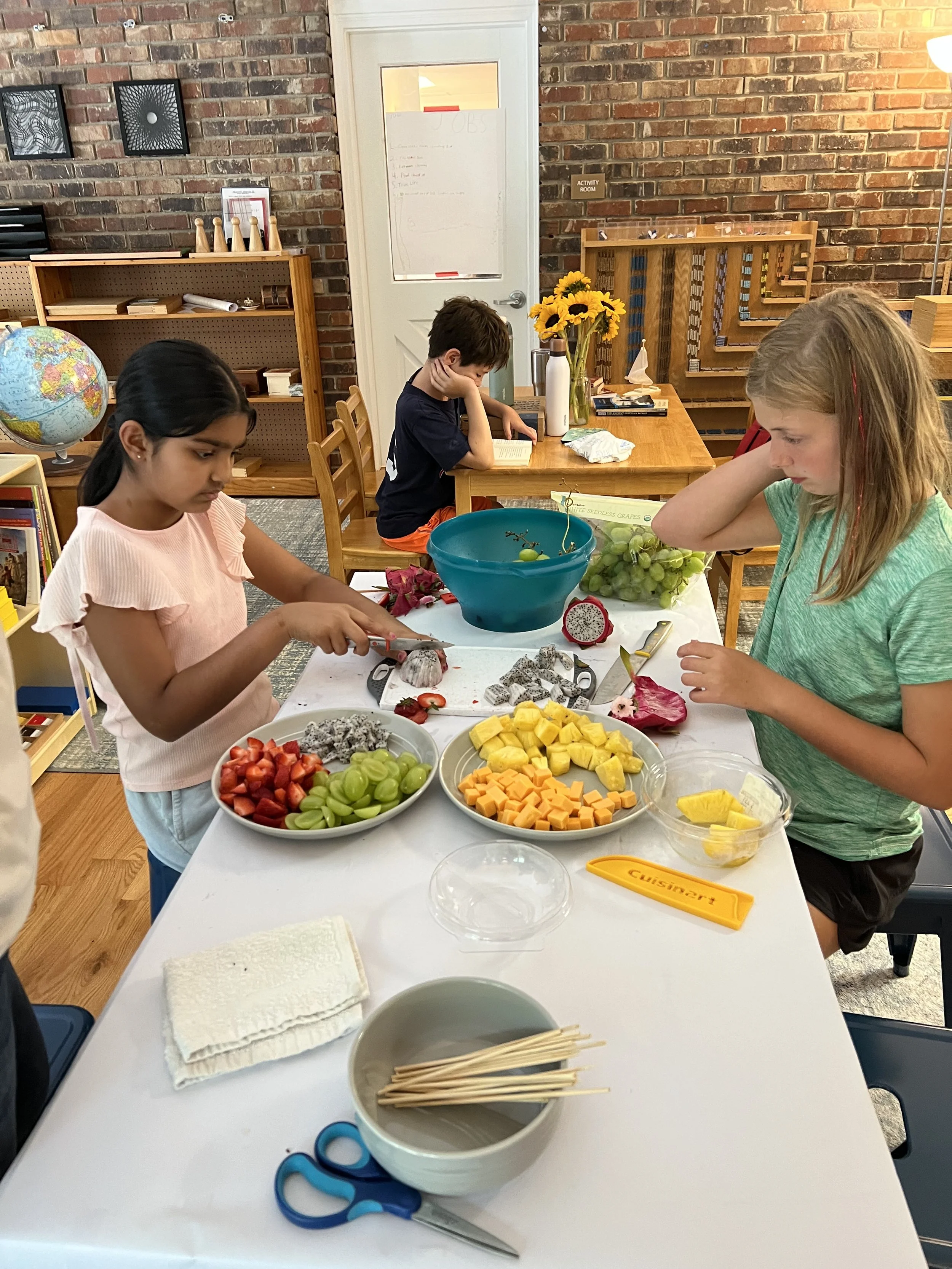Montessori Peace Education In A World Racing Ahead Of Itself
Each November, the United Nations observes the International Week Of Science And Peace, a time to reflect on how scientific progress can support—not threaten—human flourishing. More than a century ago, Dr. Maria Montessori was already wrestling with this tension. As both a physician and an educator, she believed deeply in the potential of human innovation. But she also warned that our ability to create new technologies was rapidly surpassing our moral maturity to use them wisely.
Montessori wrote that “the child is both a hope and a promise for mankind.” She saw children not as passive recipients of knowledge, but as the only true path toward lasting peace. Her concern was not technology itself, but the inner development of the human being who would wield it.
Today, her words feel even more urgent.
We live in an age of extraordinary innovation—artificial intelligence, biotechnology, quantum computing—yet the pace of change often outstrips our collective ability to consider the ethical, ecological, and human consequences. Montessori believed this mismatch between technological power and moral development creates instability, conflict, and anxiety.
Her alternative?
Not stricter rules or more specialized training—but the cultivation of peaceful, grounded, morally aware human beings from the earliest years of life.
Montessori peace education asks:
How do we help children develop empathy, responsibility, and stewardship?
How do we raise young people capable of thinking ethically, not just efficiently?
How do we nurture a generation who sees science as a tool for human dignity, not domination?
At The Mosaic Field School, this understanding shapes how we guide children from age 3 through 18. Peace education isn’t a single lesson or unit. It’s woven into how children interact, think, solve problems, and understand their place in a world where technology and innovation are rapidly reshaping what it means to be human.
Here is what Montessori peace education looks like in daily life at The Mosaic Field School:
The Primary Children’s Garden (Ages 3–6): Building Inner Peace Through Independence
Montessori understood that peace begins with the individual child. In our Children’s Garden community:
• Children practice purposeful work
Pouring, washing, using tools, caring for plants, and preparing food give young children a sense of order and responsibility.
• Conflict resolution begins gently and naturally
Guides model respectful language and teach Grace and Courtesy lessons to help young children practice what kind and respectful interactions look like in their society. In mixed-age classrooms, children learn from one another. With the help of the community, they learn to identify emotions and solve disagreements with empathy.
• Concentration is protected
Deep focus builds the inner calm that becomes the foundation for peaceful interactions later in life.
Elementary(Ages 6–12): Expanding to Ethical Thinking and Global Awareness
As reasoning abilities expand, Elementary students become curious about big questions:
How does the world work? Why do humans make certain choices? What consequences follow?
At The Mosaic Field School, peace education in this stage includes:
• Lessons on the interconnectedness of all life
Children explore how all things, living and non-living, influence one another in interconnected webs of relationships, working together to meet fundamental needs. The contextually experience how human inventions—from simple machines to digital technologies—affect communities and ecosystems, and the learn their place and part in this vast interconnected, interdependent universe.
• Opportunities to practice moral reasoning
Discussions, projects, and collaborative work help students think through fairness, justice, and responsibility. Playground games and fort building in the woods provide opportunities to practice negotiation skills, laying the foundations for thoughtful peacemaking.
• Real-world stewardship
Whether tending gardens, building shelters, observing wildlife, or caring for classroom materials, students see the impact of their choices on the world around them.
Montessori believed that when children understand their power to create, they must also understand their responsibility. At The Mosaic Field School, students learn this through experience, not lectures.
Adolescent Community (Ages 12–15): Responsible Innovation & the Ethics of Progress
During adolescence, young people become acutely aware of society, identity, and their place in a bigger world.
At The Mosaic Field School, the adolescent years offer a safe environment for:
• Ethical debates and seminars
Students wrestle with questions about scientific discovery and the moral dilemmas embedded in modern technology.
• Production, exchange, and real responsibilities
Providing products that meet the needs in our community, exchanging goods and insightful conversations at local festivals, managing group projects, and navigating peer dynamics teach adolescents how their decisions affect others.
• Peace through meaningful work
Montessori believed adolescents crave work that matters. At The Mosaic Field School, design challenges that meet community needs, work on the land that emphasizes respect and reciprocity, nature-based expeditions, and community service give students purpose and belonging.
Here, peace education becomes the ability to think critically, act responsibly, and consider long-term outcomes — exactly what our world needs as innovation races ahead.
Upper Adolescent / High School
(Ages 15–18): Preparing Ethical Leaders for a Changing World
In the older adolescent years, students deepen the skills needed to become compassionate, ethically grounded adults:
• Capstone projects with human impact
Students investigate issues like sustainability, digital ethics, environmental stewardship, or community well-being. They connect their research to needs in the local, regional, or global community to make a meaningful impact.
• Independent research and self-governance
Teens take increasing ownership over their schedule, projects, and learning pathways — building the executive function and moral clarity to navigate adulthood.
• Real collaboration with professionals and the community
Mentorships, apprenticeships, and expert-led workshops help students see how science, technology, and ethics intersect in real careers.
Montessori believed that peace comes from empowered young adults who can think deeply, act responsibly, and engage with the world thoughtfully. This is precisely what The Mosaic Field School cultivates.
Peace Education as Preparation for the Future
In an era of AI breakthroughs, global challenges, and rapid scientific change, Montessori’s message is timeless:
If our technological power grows faster than our moral development, we risk creating a world we cannot navigate.
At The Mosaic Field School, we believe the solution begins with children—children who are:
grounded in empathy
skilled at collaboration
confident in their ability to create and adapt
capable of thinking ethically about complex issues
connected to nature, humanity, and themselves
This International Week of Science & Peace, we celebrate the work our students do every day:
becoming the thoughtful, responsible innovators the future will depend on.





